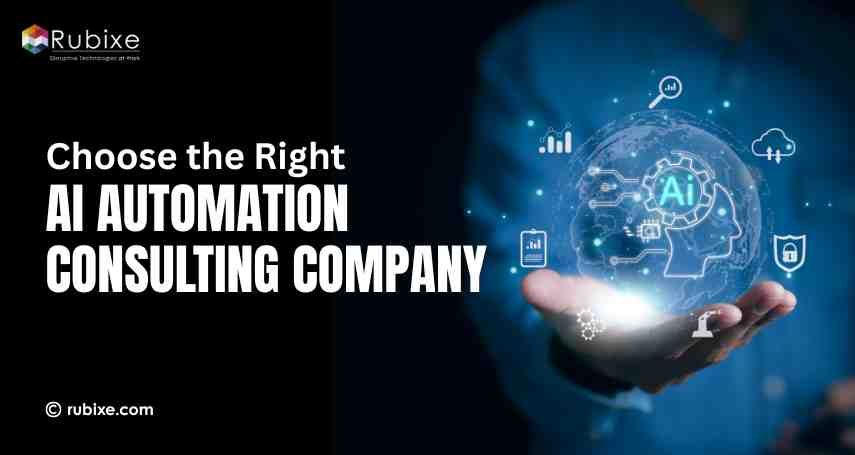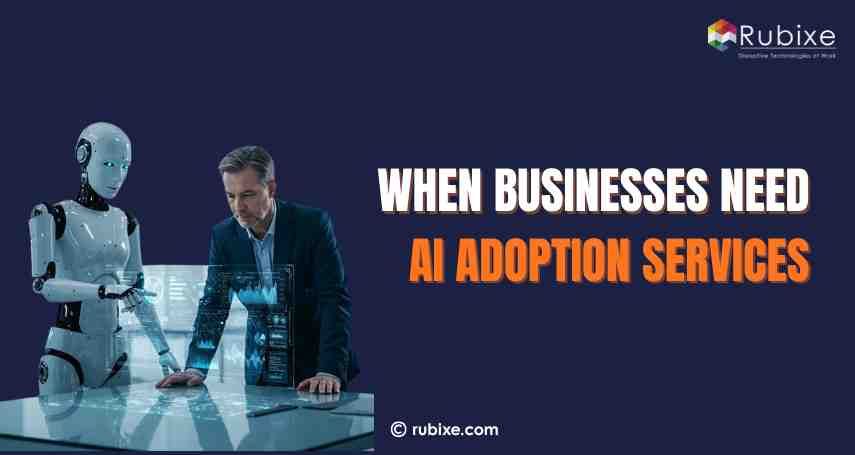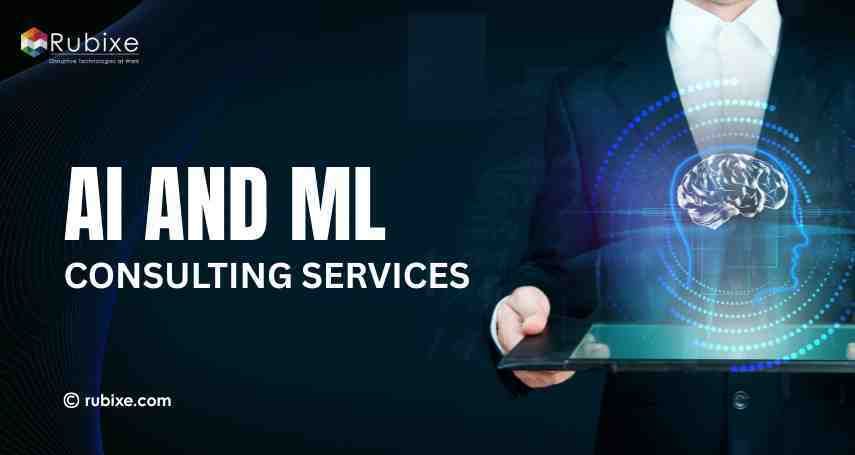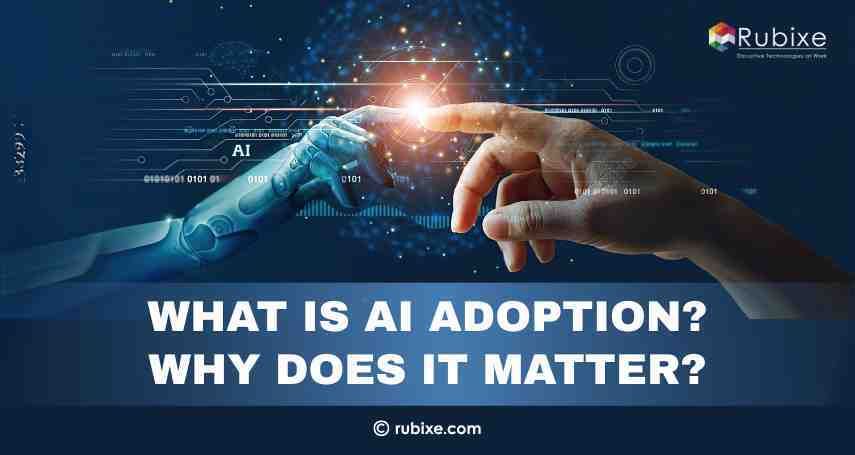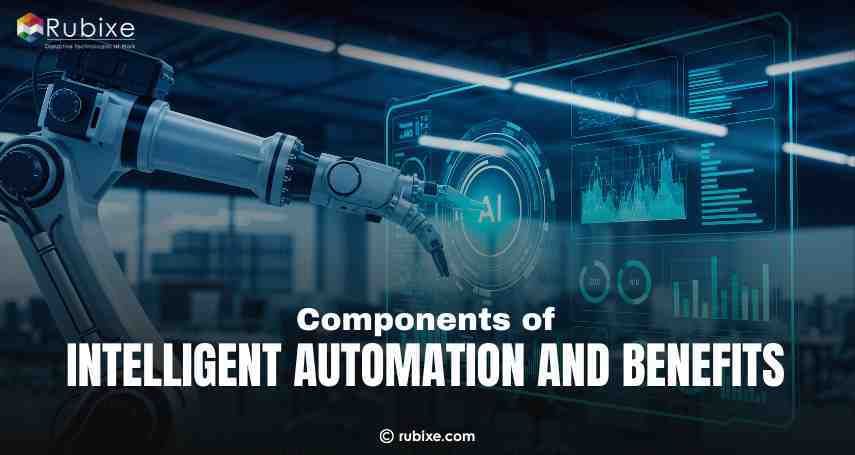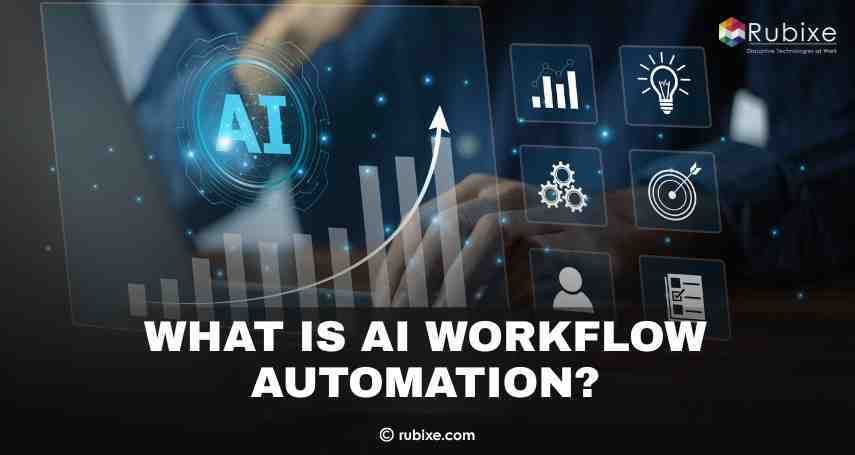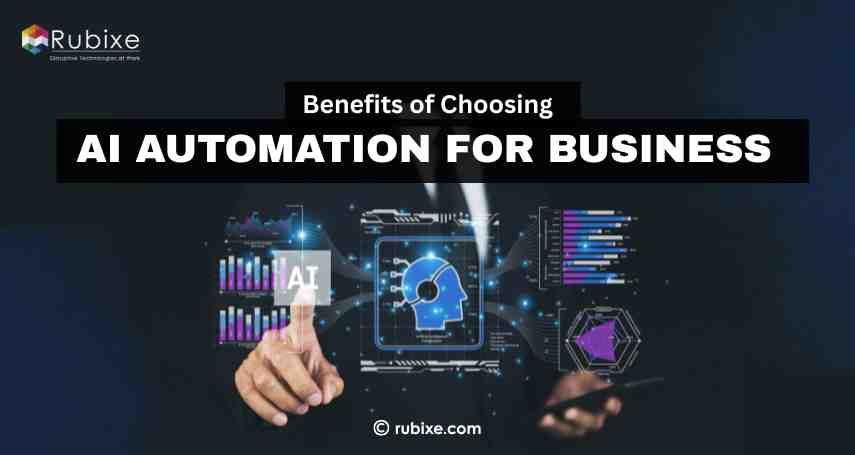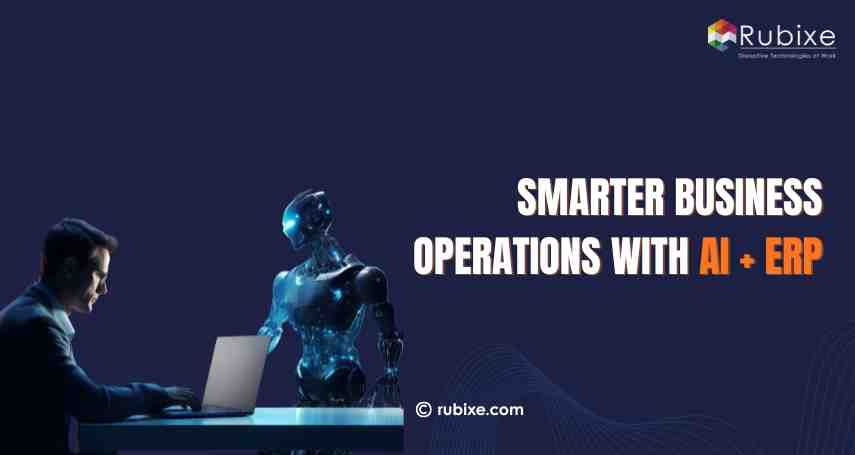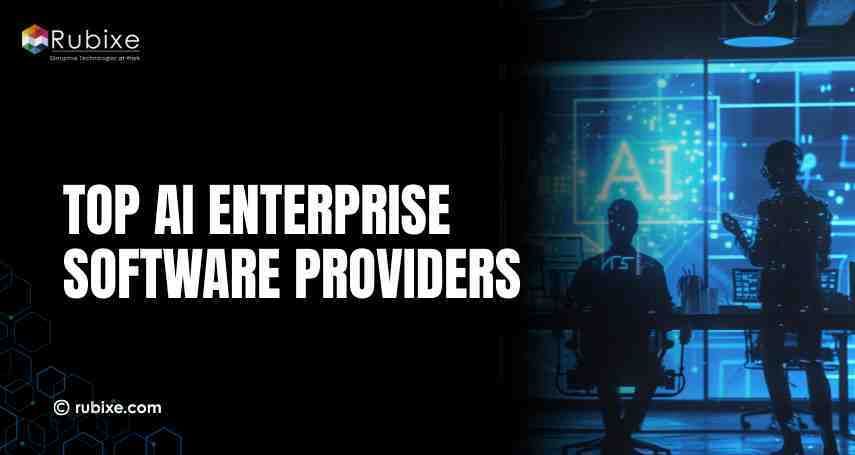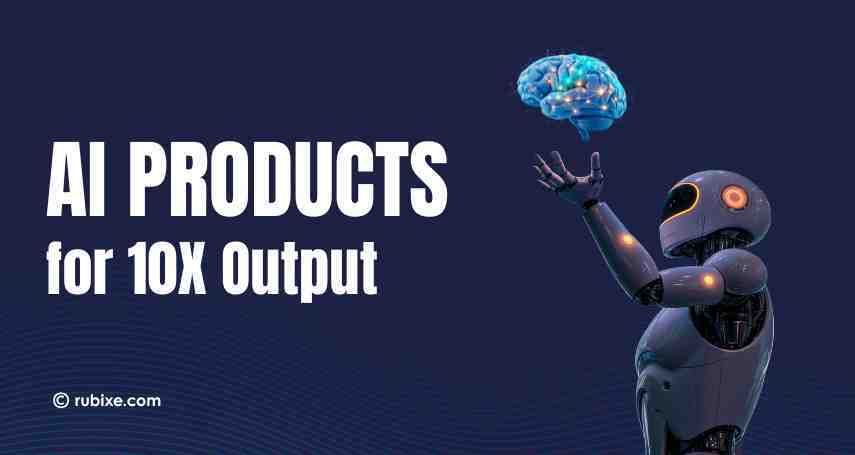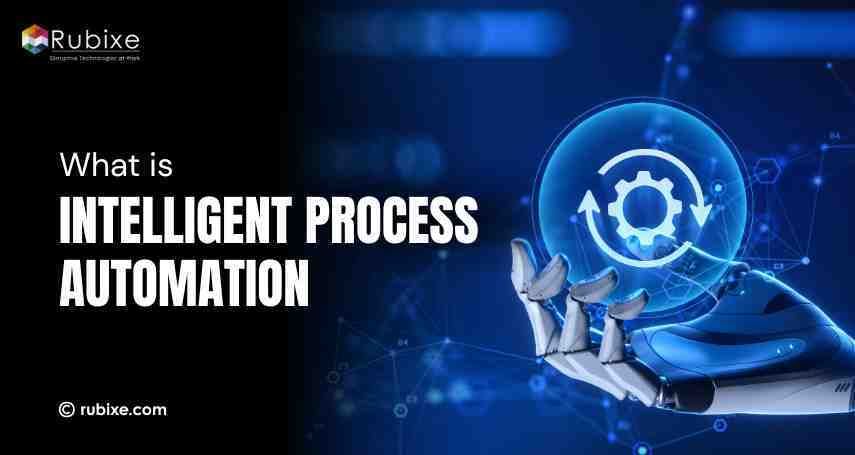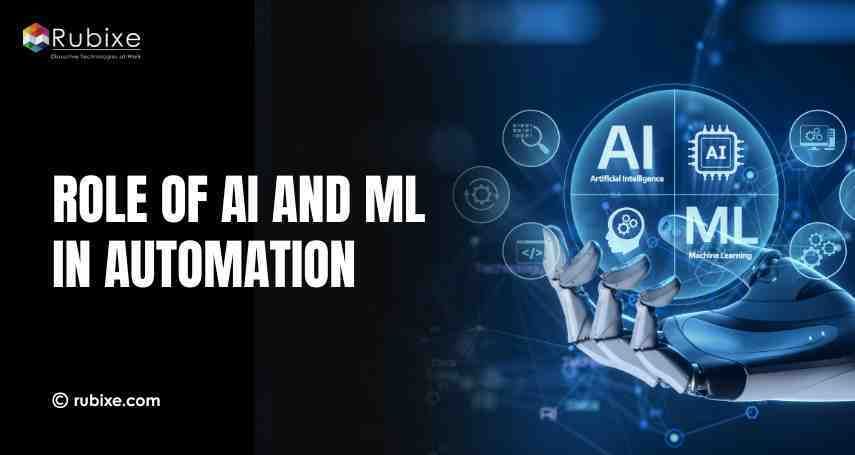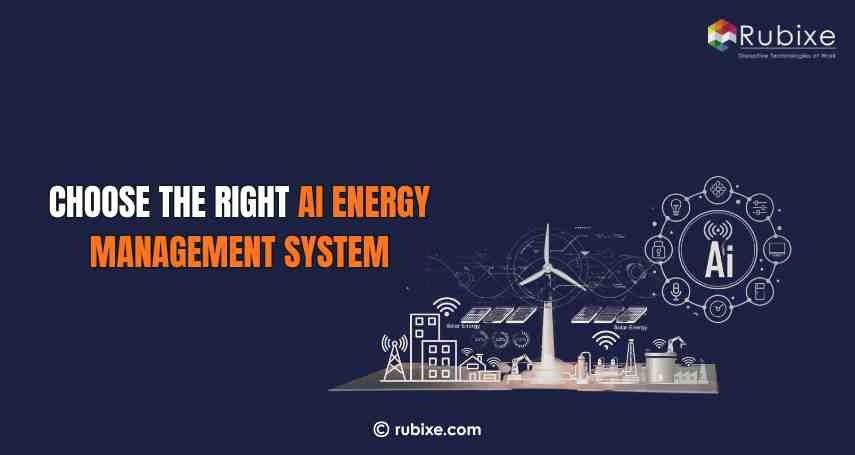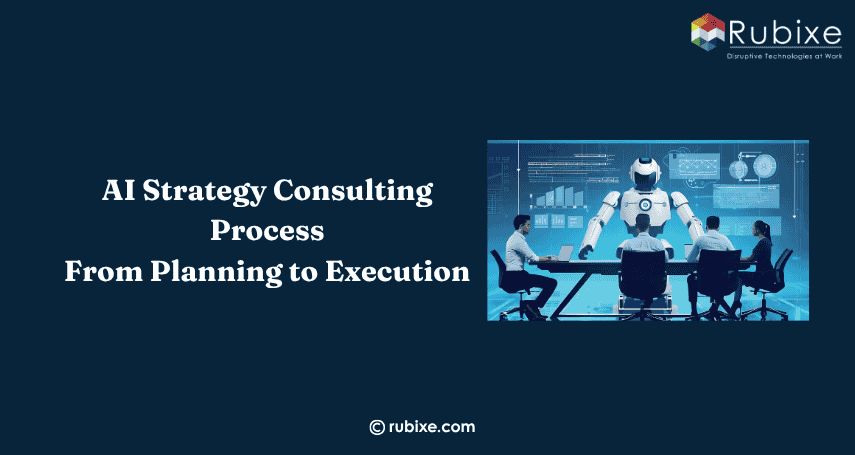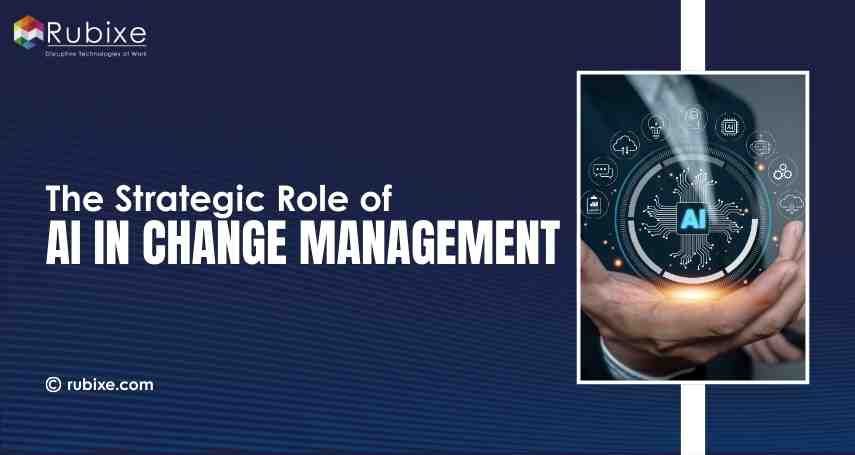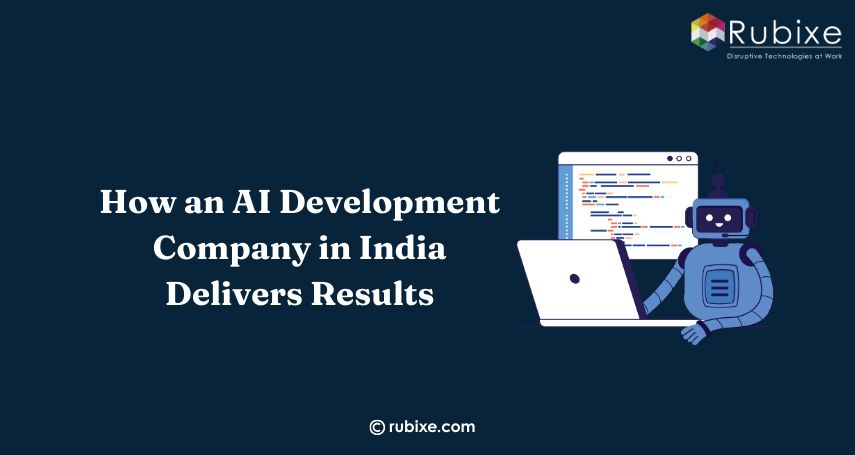AI Consulting for Business Automation Efficiency
AI consulting helps businesses streamline operations, boost productivity, and reduce costs through intelligent automation strategies tailored for efficiency and scalable growth.
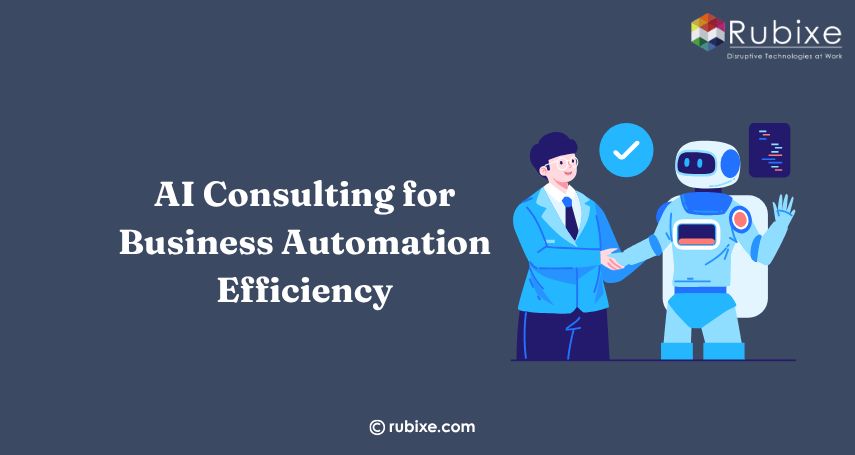
As a business leader, I’ve experienced how AI consulting can truly enhance operational efficiency. With the help of AI automation, I’ve managed to simplify processes, cut down on costs, and improve overall productivity. Working with knowledgeable consultants has made it easier to make quicker, more informed decisions across the company.
The AI Automation Edge
I call it The Automation Edge because I truly believe this technology gives us a smarter way to work. By combining my tools with intelligent automation, I’ve streamlined countless processes, eliminated repetitive tasks, and made smarter decisions across different parts of the business.
How does AI automation work?
Automation combines artificial intelligence techniques with automation to handle tasks and make decisions efficiently, much like a human would.
-
Algorithm-Driven Decision Making: At its core, automation relies on algorithms, which are sets of rules and calculations used to analyze data, recognize patterns, and make informed decisions independently.
-
Human-AI Collaboration: While digital workers automate complex workflows, humans still play a crucial role by reviewing predictions, offering feedback, and correcting errors when needed.
-
Self-Learning Capabilities: AI systems improve over time by learning from new data, making them more accurate and adaptive with every task they process.
-
Key Enabling Technologies: Tools such as machine learning models, natural language processing, and robotic process automation form the foundation of AI-powered automation systems.
-
Scalability Requires Infrastructure: To deploy AI automation across an enterprise, robust infrastructure is essential. Foundational models and cloud computing services help support both intelligence and delivery.
Key Benefits of AI Automation in Business Processes
AI automation is reshaping how businesses operate by improving efficiency, reducing manual effort, and unlocking new levels of agility. From risk detection to supply chain insights, here’s how AI is driving smarter, faster, and more collaborative operations across organizations:
-
Productivity and Cost Efficiency: Automation handles repetitive tasks like data entry and customer inquiries, freeing teams to focus on high-value strategic work. It can reduce labor costs by up to 30%, allowing companies to operate efficiently without compromising output quality.
-
Anomaly and Risk Detection: AI systems monitor processes in real time, identifying unusual patterns or threats early. This enables proactive intervention and minimizes operational risks before they escalate.
-
Supply Chain Visibility: AI tools offer end-to-end insights into supplier networks, helping businesses identify vulnerabilities and compliance risks. For instance, Semantic Visions uses AI-driven mapping to scan global data and uncover ESG issues or supplier weaknesses.
-
Cross-Department Collaboration: Automation enhances communication and workflow across teams, reducing manual tasks and encouraging collaboration. Liverpool School of Tropical Medicine improved efficiency and teamwork using FlowForma’s AI-driven, paperless platform.
-
AI-Powered Assistance: Intelligent assistants support automation around the clock, answering process questions, guiding workflows, and analyzing data to keep operations running smoothly and efficiently.
Challenges of AI Automation
While AI automation offers remarkable advantages, such as improved productivity and smarter decision-making, it also presents a range of challenges that businesses must carefully manage. Understanding these hurdles is key to successful and sustainable implementation.
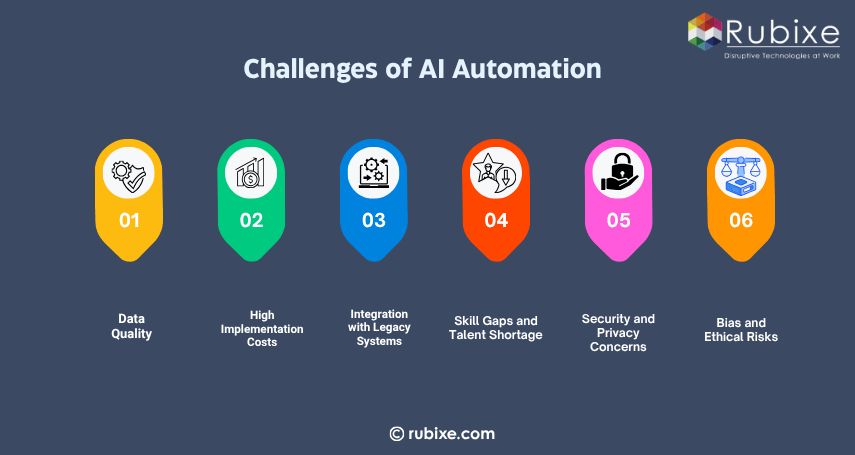
-
Data Quality and Availability: AI systems need large volumes of accurate, well-labeled data to function effectively. Poor data can result in faulty predictions and automation failures.
-
High Implementation Costs: Deploying automation often demands significant upfront investment in tools, infrastructure, and talent. This can be a barrier for smaller organizations.
-
Integration with Legacy Systems: Many businesses operate on outdated systems that are not easily compatible with AI technologies. This can cause delays and limit automation potential.
-
Skill Gaps and Talent Shortage: There is a growing need for professionals who understand AI, data science, and automation workflows. A shortage of skilled talent can slow down adoption.
-
Security and Privacy Concerns: Handling sensitive information through AI requires strong security protocols and compliance with data protection regulations like GDPR and HIPAA.
-
Bias and Ethical Risks: If AI models are trained on biased or incomplete data, they may produce unfair outcomes. This is especially critical in areas such as hiring, lending, or law enforcement.
-
Resistance to Change: Employees may fear job displacement or find it difficult to adapt to new workflows.
Examples of AI Automation
AI automation is transforming industries by reducing manual tasks, boosting productivity, and cutting costs. With 65% of workers seeing its strategic value, it's reshaping business operations.
-
AI Automation for Sales: AI reduces time spent on manual tasks like data entry and follow-ups. Intelligent tools identify top leads, generate forecasts, and personalize engagement. CRM automation frees sales teams to focus on closing deals.
-
AI Automation for Service streamlines support through automated ticketing, routing, and responses. Platforms like Agentforce increase efficiency, allowing teams to handle more complex, human-focused issues.
-
AI Automation for Marketing: AI handles tasks like email scheduling and ad optimization while enhancing personalization through segmentation and predictive analytics. Marketers gain better insights to boost campaign performance and ROI.
-
AI Automation for Commerce: AI personalizes shopping experiences with tailored product recommendations. Merchants leverage real-time data to forecast trends and optimize strategies for better sales outcomes.
-
AI Automation for IT: IT teams rely on AI to automate monitoring, data management, and system alerts. Predictive tools help reduce downtime, improve system reliability, and accelerate issue resolution.
-
AI Automation in Automotive: Real-time data from vehicles and drivers powers smart services and responsive systems. Automakers use AI to improve customer experiences and streamline production.
-
AI Automation in Healthcare: AI minimizes admin tasks like scheduling and billing. It aids in early diagnosis and preventive care by analyzing patient data, helping providers focus on quality care.
-
AI Automation in Manufacturing: AI boosts productivity by automating quality checks, predicting equipment failures, and analyzing contracts for cost savings. It also ensures safety by handling high-risk tasks.
The Future of Work and AI Automation
Automation is reshaping the workplace by reducing repetitive tasks and enabling teams to focus on strategic work. This shift boosts efficiency, fosters innovation, and demands evolving skill sets for future-ready teams.
-
Shift from Manual to Strategic Tasks: Automation is eliminating repetitive tasks, enabling employees to focus on decision-making, creativity, and innovation.
-
Evolving Job Roles and Skillsets: As automation grows, demand rises for tech-savvy professionals with skills in AI oversight, data analysis, and process optimization.
-
Hybrid Human-AI Collaboration: Future workplaces will blend human insight with AI efficiency, fostering smarter workflows and enhanced productivity across industries.
AI automation is changing how businesses work by making tasks easier and faster. With the right AI services, companies can improve efficiency, save time, and stay competitive.
